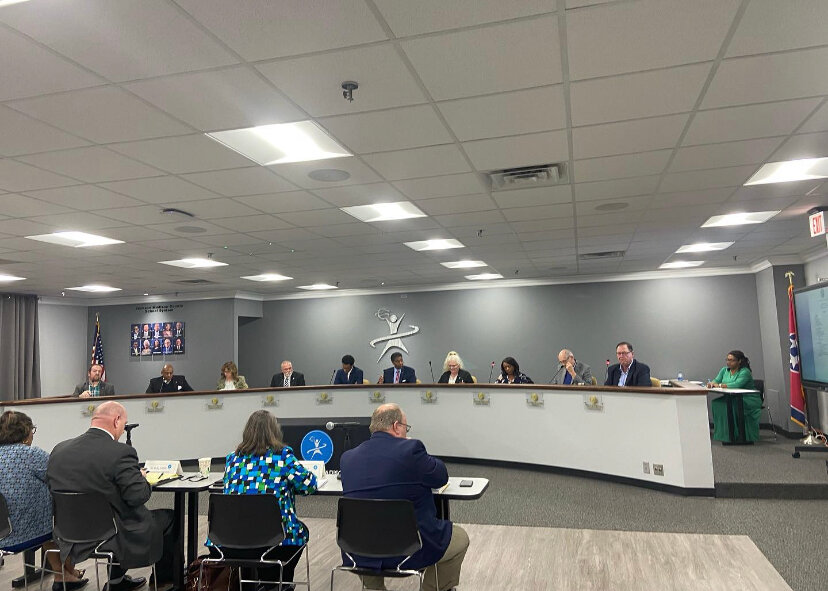Longtime educator says charter schools have no accountability
Donna Wright was an educator for more than 40 years, serving for more than a decade combined as the director of schools for Knox and Wilson counties.
In December, Jackson-Madison County Schools Superintendent Marlon King invited her to speak at the school board retreat to discuss charter schools and why she’s against them.
Her two main points were the financial drain they place on public school districts and the lack of accountability required of them compared to their counterparts at districts like JMCSS.
“Whenever private or charter school parents are surveyed about their students’ experience in those schools, those parents look at them as the better option because the presentation makes them appear to be better,” Wright said. “But we need them to present their data to prove they are.”
Wright defined charter schools as not being public schools.
“They’re non-profit and non-public even though they’re able to take funding from [JMCSS],” Wright said.
Wright said the financial problems with charter schools stem from the main issue of they remove students from districts like JMCSS.
When a student is removed from JMCSS, that removes a certain amount of funding from state and federal allotment for the district because its funding is based on the number of students in the district.
According to JMCSS’ website, each student in the district averages at $10,519 spent per pupil with 43.3% of that money coming from state funding and 15.6% coming from federal. For each student that leaves JMCSS, that’s a potential loss of $6,195.70 per year.
JMCSS is only funded for students from kindergarten through 12th grade, meaning the 920 pre-K students JMCSS educates is not funded from state and federal money. That’s 46 classes of 20 students each that are funded either with local tax revenue or through various grants.
“And while the district may not have as many students to handle as far as some costs go, there are still a number of fixed costs you have to pay,” Wright said. “The buildings still have to be maintained. The lights still have to be turned on.
“If a bus goes down a road to pick up 10 kids and then four or six or even eight of those kids wind up going to a charter school, the bus still has to go down that road to pick up the remaining students. So the lack of funding and resources doesn’t match up with the loss of students to take care of.”
Wright warned there’s another risk too when it comes to transparency and accountability for charter schools.
“They’re not audited nearly as often as you are,” Wright said while speaking with JMCSS leadership and board members.
Every public school is audited on a yearly basis – sometimes more frequently – to make sure the dollars sent to the district are spent with the students’ best interests and education in mind.
Wright gave an anecdotal example of how that’s not always happening in charter schools.
“A school in Nashville was open for three years and was never audited,” Wright said. “When that school was audited, this school of 150 students, was found to have been paying the husband-wife administration team more than half a million dollars.
“Dr. King, do you have any administrators in your school system who are making $250,000?”
King shook his head no.
When asked about demographics of most charter schools, Wright said in most districts in other states, there’s a noticeable “white flight” as white families try to remove their children from the school district.
Another question was asked about how they handle students with special needs or learning challenges.
“In my experience from my research and those who’ve dealt with it, they’ll tell you no but they’ll be so sweet about it,” Wright said. “They’ll use phrases like ‘We just don’t think we can really meet your child’s needs as well as the public district can’ or something like that.
“And then if they do accept a student that doesn’t do as well, they’ll have that student out of their classrooms by the end of March.”
She asked the educators in the room if hearing about the month of March threw up any red flags for them. They responded that end of course testing happens soon after that.
“They have the child for a few months, and they see there’s a learning issue with him or her, they get him or her out of their school in March,” Wright said. “Because if they’ve been out of their school for so many days before testing, then their low grade won’t reflect on them.
“And that’s just wrong. If you’re going to educate the child, then educate the child. But if you’re not, then leave the child in an environment with people we know will work to educate them in the school district.”
Brandon Shields, brandon@jacksonpost.news






